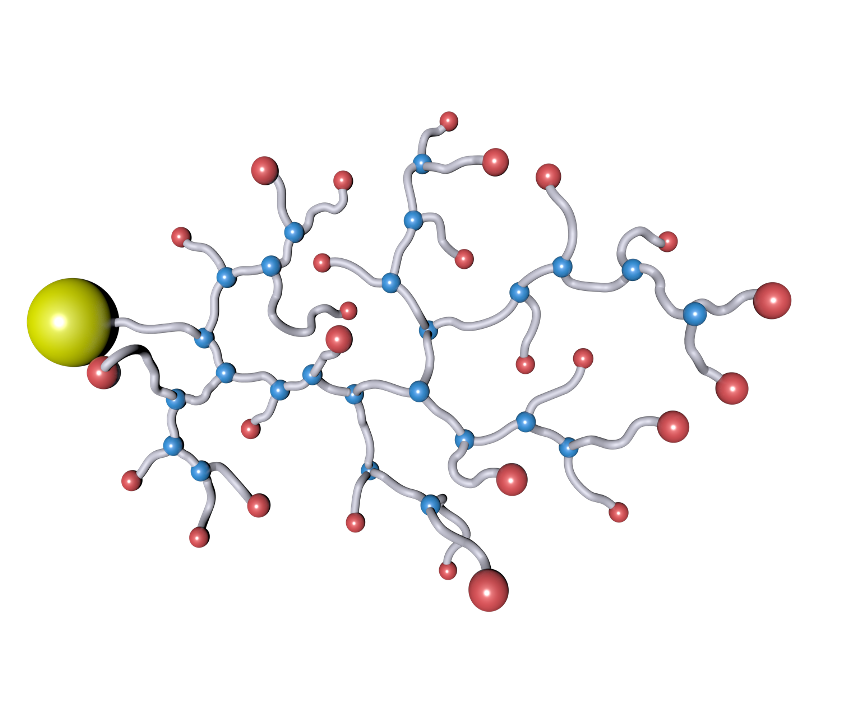Exploring the Varied Applications and Advantages of Polymers in Different Industries
Polymers, with their varied variety of residential or commercial properties and performances, have come to be crucial in various industries, each reaping distinct take advantage of their application. Polymers. From improving security and performance in the automobile industry to transforming clinical gadgets in the medical care industry, polymers play a crucial duty. In addition, their environmentally friendly nature is altering the landscape of sustainability techniques. As we dig into the midsts of polymers in electronic devices, we reveal cutting-edge advancements, while their structural integrity changes the world of building and framework. The pervasive impact of polymers throughout markets is a testament to their convenience and versatility, forming the future of plenty of industries.
Automotive Sector Applications
Polymers play a pivotal function in improving the efficiency and longevity of numerous parts within the automobile field. One noticeable usage of polymers in the automotive market is in the manufacturing of lightweight elements.

Healthcare Sector Advantages
In various health care applications, the benefits of using polymers are extensively acknowledged for their varied variety of valuable homes. Polymers play a vital function in the healthcare sector due to their convenience, biocompatibility, and cost-effectiveness. One of the primary advantages of polymers in medical care is their capacity to be customized to certain demands, such as versatility, toughness, and biodegradability, making them optimal for a vast array of clinical applications.
Polymer-based products are extensively utilized in medical tools, such as catheters, implants, prosthetics, and drug distribution systems, because of their biocompatibility and capability to imitate all-natural cells. These materials can reduce the danger of allergies or denials, improving individual safety and outcomes. Furthermore, polymers are lightweight, making them ideal for wearable clinical tools and making certain individual comfort.
Additionally, polymers enable the advancement of innovative treatment approaches, such as hydrogels for tissue design and nanocomposites for targeted medicine delivery. Their ease of handling and sanitation makes them essential for preserving high criteria of health in healthcare setups. On the whole, the diverse advantages of polymers contribute dramatically to innovations in medical innovation and client care.
Environmental Benefits of Polymers

Additionally, polymers can contribute to energy savings because More hints of their lightweight nature. In markets such as transport, light-weight polymer products can help lower fuel usage and greenhouse gas emissions. Furthermore, polymers can enable the growth of energy-efficient items such as insulation products that improve energy preservation in structures.
Furthermore, polymers play a crucial function in reducing water contamination. The use of polymer-based filtration systems can successfully eliminate contaminants and impurities from wastewater, safeguarding water sources and environments. On the whole, the ecological benefits of polymers make them valuable assets in promoting sustainability and environmentally friendly practices across various sectors.
Polymers in Electronic Devices and Innovation
Considering the increasing demand for cutting-edge and lasting services in modern markets, the integration of innovative polymer innovations in the realm of electronic devices and innovation has actually emerged as an essential technique for driving performance and performance. Polymers have actually revolutionized the electronic devices market by enabling the manufacturing of lighter, much more adaptable, and resilient digital devices. From smart devices to medical learn this here now tools, polymers play a crucial function in enhancing item layout and capability.
One substantial benefit of polymers in electronic devices is their insulating homes, which aid shield delicate digital components from environmental variables and electrical interference. In addition, polymers are essential in the advancement of adaptable displays, wearable innovation, and published electronics, providing countless possibilities for developing smart and interconnected gadgets.
Moreover, using polymers in electronic packaging has caused developments in miniaturization and thermal administration, boosting the total performance and reliability of electronic systems. As innovation remains to develop, the adaptability and flexibility of polymers will certainly drive even more advancement in the electronic devices sector, forming the future of modern technology.
Duty of Polymers in Building And Construction and Infrastructure
Polymers offer numerous advantages in the building and construction sector due to their flexibility, resilience, and cost-effectiveness. One key role of polymers in building is their usage in coatings and sealers, giving defense against ecological aspects such as wetness, UV radiation, and corrosion.
Additionally, polymers play a critical role in sustainable building and construction techniques by enabling the advancement of energy-efficient structures. Protecting products made from polymers aid regulate indoor temperatures, minimizing the demand for home heating and cooling down systems and eventually reducing power intake - Polymers.
Verdict
Finally, polymers play an important function in different sectors such as automotive, healthcare, environmental, electronics, and construction. Their flexible properties make them valuable in producing cutting-edge remedies and items. From enhancing gas effectiveness in automobiles to improving clinical gadgets, polymers use many advantages. Furthermore, their effect on reducing waste and promoting sustainability highlights their relevance in modern-day applications. The prevalent usage of polymers shows their considerable contribution to progressing modern technology and enhancing lifestyle.